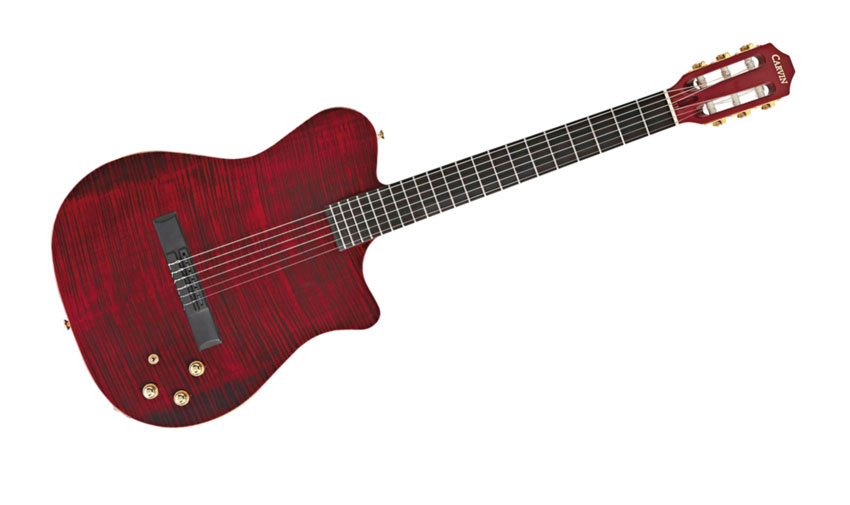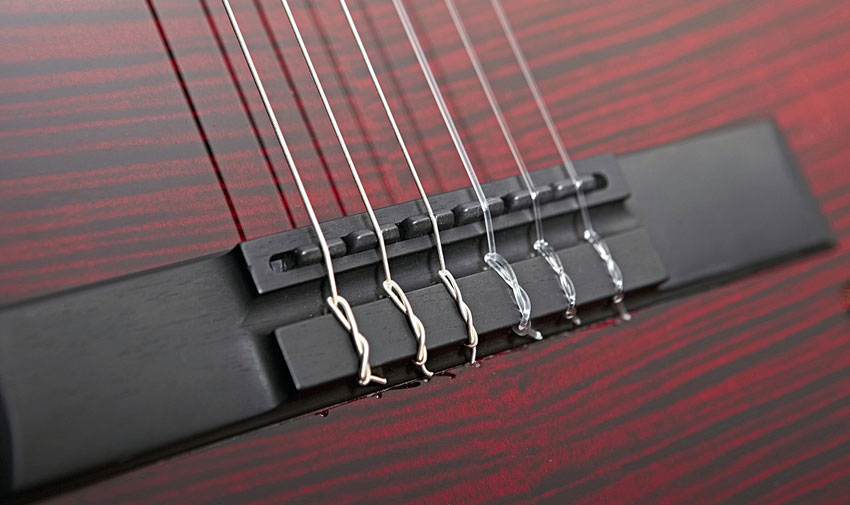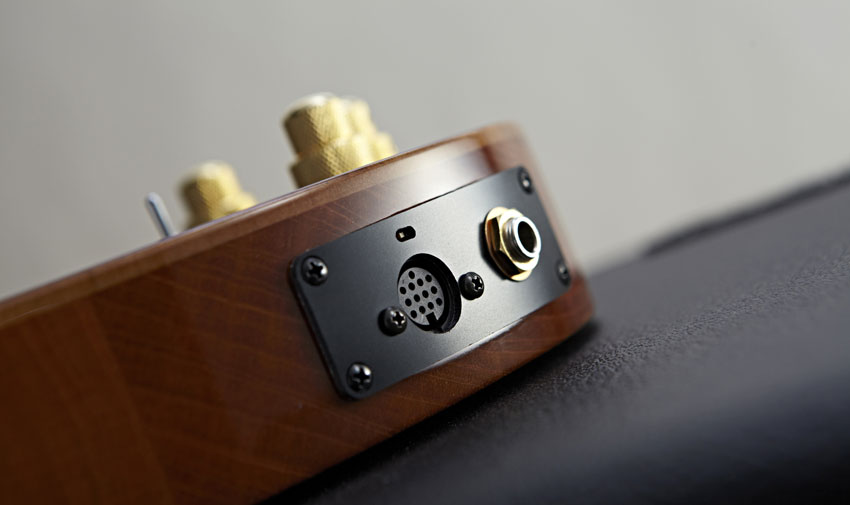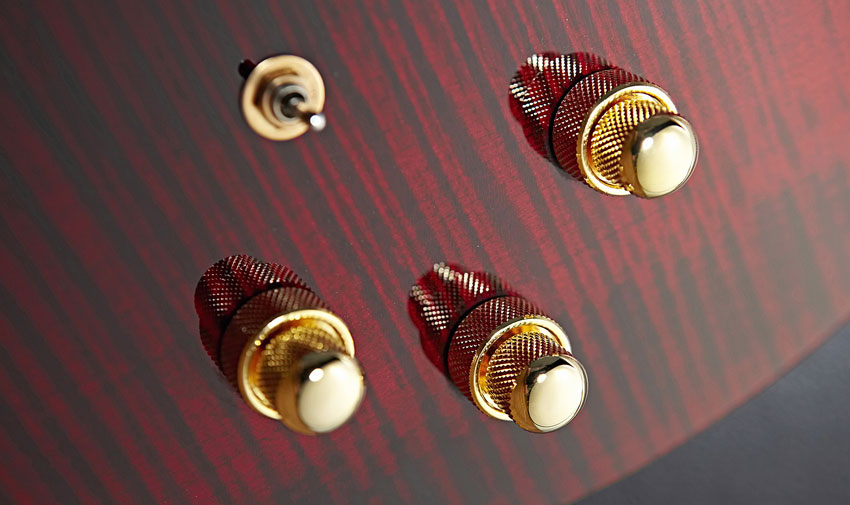MusicRadar Verdict
Beautifully made nylon stage electro-acoustic with Synth Access and superb feedback resistance.
Pros
- +
Great if you need nylon tones for big gigs. Beautifully made. Feedback resistance.
Cons
- -
Will anger your purist friends.
MusicRadar's got your back

Carvin NS-1

Bridge

Outputs

Controls
Think Carvin and it'll probably conjure images of Steve Vai and his signature amps, or perhaps the Frank Gambale and Allan Holdsworth signatures we looked at last year. But, yes, as this NS-1 proves, Carvin makes guitars with nylon strings, too.
Of course, nylon-string guitars are a no-go area for the vast majority of us still traumatised by those cheap 'classical' guitars we learned on back in school. But the NS-1, like Godin's Multiac nylon-string guitars, is about as far removed from those models as it's possible to be. Add in a fully featured hexaphonic pickup system and active EQ, not to mention a 13-pin DIN output to hook yourself up to a synth, and you have a very different guitar.
Build
"Aside from the classical-style headstock and tie-block bridge, there's nothing here that references the classical guitar"
Aside from the classical-style headstock and tie-block bridge, there's nothing here that references the classical guitar. Construction-wise, for example, we have a mahogany thru neck, with chambered wings topped with a finely flamed maple cap.
Its outline references a Telecaster, not a Torres; the ebony 'board has very electric-like medium gauge frets and a 'semi flat' fingerboard radius of 508mm. In classical-style, the fingerboard face is marker free - thankfully, though, we have electric-like side dots from the 3rd to the top 21st fret.
Compared with a classical's 50mm or 52mm nut width we have a far more manageable 48.6mm width, while string spacing at the bridge is Fender electric-like at 55mm. The neck profile is a finely shaped, slightly flat-backed D that should feel comfortable played in either thumb-around or more traditional thumb-behind positions. In fact, picking this out of its hard case, there's a definite steel-string-meets- nylon crossbreed feel.
It's all beautifully made and finished in a high-quality style that's typical of Carvin's detailed build. The finish is super glossy but clearly thin: you can see the undulating ripples of the flame maple top through the finish. Weight-wise, it's tubby compared to a lightly built classical instrument but very lightweight for an electric.
Three stacked gold-plated knobs take care of business with MIDI/piezo volume, and centre-notched treble and bass cut/boost, mid cut/boost and sweep. A mini toggle momentary switch changes synth patches, and along with the standard jack piezo output there's the necessary 13-pin socket to access the world of MIDI. This well spec'd preamp is provided by Graph Tech, along with the hexaphonic piezo pickup mounted in the ebony tie-block bridge.
Want all the hottest music and gear news, reviews, deals, features and more, direct to your inbox? Sign up here.
Sounds
With an obviously small acoustic voice, plugged in the NS-1 possesses a clean, clear and fairly uncoloured nylon tone. There's noticeable piezo snap if you dig in, but with careful use of the midrange controls and a slight treble and bass lift the guitar sounds pretty convincing, with quite a bit of thump in there for percussive styles.
It certainly has a reduced dynamic range compared with a more standard cutaway electro, but then it plays much more like an electric. The NS-1 is impressively feedback-resistant - a good choice for louder gigs, especially with a full band.
Carvin's detailed, considered build is perfect if you need a pro-quality nylon- string for your louder gigs where a more standard electro-acoustic doesn't cut it. It's a beautiful guitar and very practical with it.
Dave Burrluck is one of the world’s most experienced guitar journalists, who started writing back in the '80s for International Musician and Recording World, co-founded The Guitar Magazine and has been the Gear Reviews Editor of Guitarist magazine for the past two decades. Along the way, Dave has been the sole author of The PRS Guitar Book and The Player's Guide to Guitar Maintenance as well as contributing to numerous other books on the electric guitar. Dave is an active gigging and recording musician and still finds time to make, repair and mod guitars, not least for Guitarist’s The Mod Squad.
